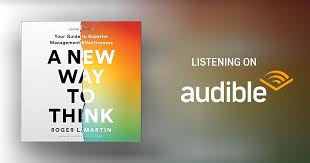Audible Way to Think: How Audiobooks and Podcasts Are Shaping Modern Thought
In the digital age, the way we consume information has evolved dramatically. One of the most significant changes has been the rise of audio content—particularly audiobooks and podcasts. The New York Times has highlighted this trend, noting how these platforms are transforming the way people think, learn, and engage with the world. This article explores the phenomenon of audiobooks and podcasts, their impact on cognitive processes, and their growing influence in shaping public discourse.
The Rise of Audible Content: A Brief Overview
The popularity of audiobooks and podcasts has skyrocketed over the past decade. According to a report by the Audio Publishers Association, audiobook sales reached $1.3 billion in 2022, marking the tenth consecutive year of double-digit revenue growth. Similarly, podcasts have seen a significant surge in popularity, with over 100 million Americans listening to podcasts regularly as of 2023.
Several factors contribute to this trend. First, the convenience of consuming content on the go makes audiobooks and podcasts appealing to busy individuals. Whether during commutes, workouts, or household chores, people can now maximize their time by engaging with content that informs, entertains, or educates them.
Second, advancements in technology, such as the proliferation of smartphones and smart speakers, have made accessing audio content easier than ever. With platforms like Audible, Spotify, and Apple Podcasts, users have an extensive library of content at their fingertips, catering to a wide range of interests and preferences.
Finally, there is the element of multitasking. In an era where time is a precious commodity, the ability to consume content while performing other tasks is a significant advantage. This ability to multitask without compromising the quality of the content consumed is a key factor in the growing popularity of audiobooks and podcasts.
Cognitive Impacts of Listening: How Audiobooks and Podcasts Engage the Mind
Listening to audiobooks and podcasts is not merely a passive activity; it engages the mind in unique and complex ways. Research suggests that listening to content activates different areas of the brain compared to reading. When we listen to a story or a lecture, our brains must process the auditory information, visualize the scenarios being described, and interpret the tone and emotion in the speaker’s voice.
One of the most intriguing aspects of this cognitive engagement is the way it enhances imagination and creativity. When we listen to a story, our brains create mental images to accompany the narrative. This process of visualization is more active than when reading, where images are often provided or more explicitly guided by the text. This enhanced engagement can lead to deeper understanding and retention of information.
Moreover, listening to audiobooks and podcasts can improve language skills. As we listen to spoken language, we become more attuned to nuances in pronunciation, intonation, and rhythm. This exposure can enhance vocabulary acquisition and comprehension, particularly for those learning a new language or looking to improve their linguistic skills.
Another significant cognitive benefit is the enhancement of memory retention. Studies have shown that listening to information, especially when combined with visual cues or notes, can improve recall and understanding. This is particularly relevant in educational contexts, where audiobooks and podcasts are increasingly used as supplementary learning tools.
The Emotional Resonance of Audio Content: Connecting with Listeners
Beyond cognitive engagement, audiobooks and podcasts have a profound emotional impact on listeners. The human voice is a powerful tool for conveying emotion, and when content is delivered with passion, empathy, or enthusiasm, it resonates more deeply with the audience. This emotional connection can enhance the listener’s engagement with the content and make the experience more memorable.
For example, consider the difference between reading a text on mental health and listening to a podcast where someone shares their personal struggles and triumphs. The latter can be far more impactful because it conveys the raw emotions and experiences of the speaker, allowing listeners to connect on a personal level. This emotional resonance is a key reason why podcasts on topics like mental health, personal development, and storytelling are so popular.
Audiobooks, too, benefit from this emotional connection. A well-narrated audiobook can bring characters to life, making the story more immersive and engaging. The narrator’s voice can convey subtle emotions, build tension, and create a sense of intimacy that draws the listener into the narrative. This is particularly effective in genres like fiction, memoirs, and biographies, where the emotional journey of the characters or the author is central to the story.
Shaping Public Discourse: The Influence of Podcasts on Society
Podcasts have become a powerful medium for shaping public discourse. With the rise of independent creators and niche content, podcasts offer a platform for voices that might not have been heard in traditional media. This democratization of content allows for diverse perspectives and deep dives into topics that are often overlooked or underrepresented.
One of the most significant impacts of podcasts is their role in fostering community and dialogue. Podcasts often create dedicated listener bases who engage with the content and with each other. This community aspect is further amplified by social media, where listeners can discuss episodes, share their thoughts, and connect with others who share their interests.
Podcasts have also played a crucial role in raising awareness about social and political issues. Shows like “Serial” and “The Daily” have brought attention to topics such as criminal justice reform and current events, sparking conversations that extend far beyond the podcast itself. These discussions can lead to real-world actions, such as policy changes or social movements, demonstrating the power of podcasts to influence society.
Furthermore, podcasts have become an essential tool for thought leadership. Experts and influencers in various fields use podcasts to share their insights, research, and opinions with a broader audience. This has led to the rise of “podcast intellectuals,” individuals who gain influence and recognition through their contributions to podcast content.
The Future of Audible Thinking: What Lies Ahead
As audiobooks and podcasts continue to grow in popularity, their influence on the way we think and engage with the world will only deepen. Several trends point to the future of audible thinking.
First, there is the increasing integration of audiobooks and podcasts into educational settings. With the rise of remote learning and digital classrooms, audio content is being used to supplement traditional teaching methods. This is particularly valuable in reaching students with different learning styles, such as auditory learners.
Second, the rise of AI and machine learning is likely to further personalize the audio experience. As algorithms become more sophisticated, platforms will be able to recommend content tailored to individual preferences, learning styles, and cognitive abilities. This personalization could enhance the effectiveness of audiobooks and podcasts as tools for learning and personal development.
Finally, the growing emphasis on mental health and well-being is likely to drive the demand for content that offers emotional support, mindfulness practices, and personal growth strategies. Audiobooks and podcasts are uniquely positioned to meet this demand, offering accessible and engaging content that resonates emotionally with listeners.
Conclusion
The audible way to think—through audiobooks and podcasts—is reshaping how we process information, connect with others, and engage with the world. As these platforms continue to evolve, they will play an increasingly important role in shaping public discourse, fostering community, and enhancing our cognitive and emotional well-being. Whether for education, entertainment, or personal growth, the power of audible thinking is undeniable, and its influence is set to grow even further in the years to come.


